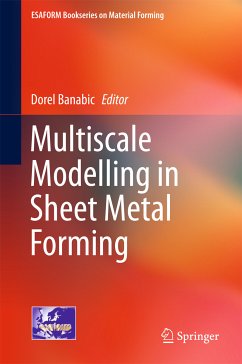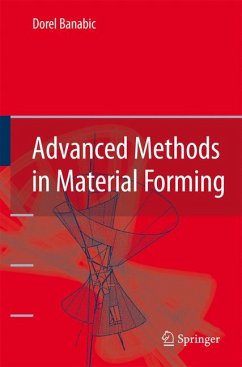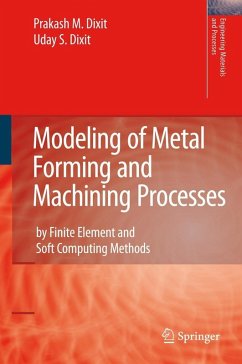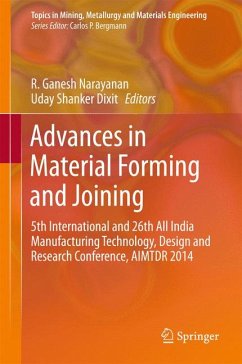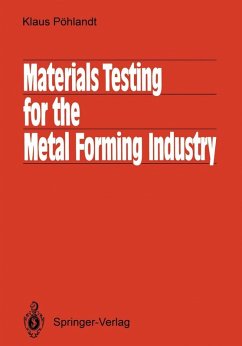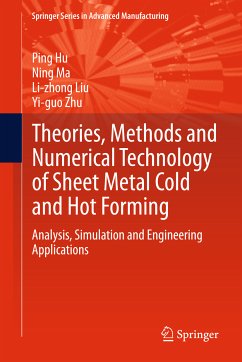
Theories, Methods and Numerical Technology of Sheet Metal Cold and Hot Forming (eBook, PDF)
Analysis, Simulation and Engineering Applications
Versandkostenfrei!
Sofort per Download lieferbar
72,95 €
inkl. MwSt.
Weitere Ausgaben:

PAYBACK Punkte
36 °P sammeln!
Over the last 15 years, the application of innovative steel concepts in the automotive industry has increased steadily. Numerical simulation technology of hot forming of high-strength steel allows engineers to modify the formability of hot forming steel metals and to optimize die design schemes. Theories, Methods and Numerical Technology of Sheet Metal Cold and Hot Forming focuses on hot and cold forming theories, numerical methods, relative simulation and experiment techniques for high-strength steel forming and die design in the automobile industry. Theories, Methods and Numerical Technology...
Over the last 15 years, the application of innovative steel concepts in the automotive industry has increased steadily. Numerical simulation technology of hot forming of high-strength steel allows engineers to modify the formability of hot forming steel metals and to optimize die design schemes. Theories, Methods and Numerical Technology of Sheet Metal Cold and Hot Forming focuses on hot and cold forming theories, numerical methods, relative simulation and experiment techniques for high-strength steel forming and die design in the automobile industry.
Theories, Methods and Numerical Technology of Sheet Metal Cold and Hot Forming introduces the general theories of cold forming, then expands upon advanced hot forming theories and simulation methods, including:
the forming process, constitutive equations, hot boundary constraint treatment, and hot forming equipment and experiments.
Various calculation methods of cold and hot forming, based on the authors' experience in commercial CAE software for sheet metal forming, are provided, as well as a discussion of key issues, such as hot formability with quenching process, die design and cooling channel design in die, and formability experiments.
Theories, Methods and Numerical Technology of Sheet Metal Cold and Hot Forming will enable readers to develop an advanced knowledge of hot forming, as well as to apply hot forming theories, calculation methods and key techniques to direct their die design. It is therefore a useful reference for students and researchers, as well as automotive engineers.
Theories, Methods and Numerical Technology of Sheet Metal Cold and Hot Forming introduces the general theories of cold forming, then expands upon advanced hot forming theories and simulation methods, including:
the forming process, constitutive equations, hot boundary constraint treatment, and hot forming equipment and experiments.
Various calculation methods of cold and hot forming, based on the authors' experience in commercial CAE software for sheet metal forming, are provided, as well as a discussion of key issues, such as hot formability with quenching process, die design and cooling channel design in die, and formability experiments.
Theories, Methods and Numerical Technology of Sheet Metal Cold and Hot Forming will enable readers to develop an advanced knowledge of hot forming, as well as to apply hot forming theories, calculation methods and key techniques to direct their die design. It is therefore a useful reference for students and researchers, as well as automotive engineers.
Dieser Download kann aus rechtlichen Gründen nur mit Rechnungsadresse in A, B, BG, CY, CZ, D, DK, EW, E, FIN, F, GR, HR, H, IRL, I, LT, L, LR, M, NL, PL, P, R, S, SLO, SK ausgeliefert werden.




